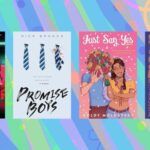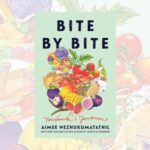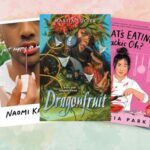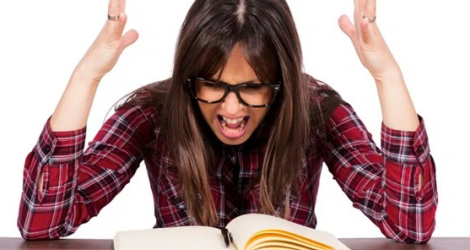
Self-Help, Minus the Miracles
Lisa Ruiz is a writer, cat mom, sick person, sewist, and proud aunt living in arid Southern California. You can find her at her personal blog or on Twitter.
Content warning: this article contains discussion of disordered eating.
The self-help genre and I have had a relationship that could best be characterized by Katy Perry’s 2008 hit “Hot N Cold.” I became chronically ill at the tail end of my teen years, and like many newly disabled people, I was determined to heal myself. Conventional medicine was closed off to me, as I was uninsured; and even if I had had insurance back then, so little was known about my illnesses that I doubt it would’ve helped. I turned instead to alternative medicine.
I started off with some pretty basic mainstream stuff: detoxes, fasting, and cutting out things like sugar, artificial sweeteners, and white flour. I was inspired by the miracle promises made by the authors of the books I picked up at my favorite health food store. I had the power to eliminate illness and welcome boundless energy into my life! Well, weeks and months passed, and I was still exhausted and in pain. I delved deeper into the genre. I cut out food after food: meat, dairy, beans and grains, anything cooked. I tried some spiritual and psychological self-help, like Rhonda Byrne’s wildly popular book on creative visualization, The Secret. I was eating raw fruits and vegetables, fasting for days on end, taking a cupboard’s worth of supplements, pretending I was healthy and rich, and living in a private world of despair. I felt ashamed that I couldn’t fix my body and pained to imagine a life with chronic illness.
Self-help books that promise miracles might seem positive on the surface, but their glossy sheen is a thin cover for rotten ugliness. Because if everyone has the ultimate power to become perfectly healthy, rich, and happy, then it’s their fault if they’re not. These books trap vulnerable people—sick people, abused people, poor people—in a cycle of hope, shame, and despair that helps no one but the authors and publishers who take their money.
Recovery from this period of my life was slow and difficult. I shunned self-help books for years, afraid of getting trapped again. It wasn’t until I found a therapist who I really trusted that I dared to crack a self-help book open. As it turns out, there’s more to self-help than false promises and blame. Beginning with the books my therapist recommended to me (side note: find a therapist who will work with your bookish nature!), I found a whole bunch of books that were compassionate, realistic, and helpful.
The truth I’ve discovered is this: we play a role in how our lives go. We can learn skills that improve our lives. It’s good to do what we can to make things better for ourselves and the world. But there are many other factors that are out of our control. Miracle cures are incredibly rare and are technically not miracles. And it’s possible to be chronically ill and live a life that is marvelously full. Here are some of the self-help books I’ve loved:
 How to Be Sick by Toni Bernhard
How to Be Sick by Toni Bernhard
This is the best guide to living well with a chronic illness that I’ve read. Bernhard shares what she has learned from her Buddhist practice and teaches the reader how to live compassionately and mindfully.
How to Stop Procrastinating by S.J. Scott
There are a lot of bad books about productivity out there, but this isn’t one of them. It’s packed full of good advice, it has activities to complete for each part, and it’s super cheap on Kindle. I wish I had had this in undergrad.
The Jesuit Guide to (Almost) Everything by James Martin, SJ
I’m an agnostic, but this book not only satisfied my curiosity about Jesuit philosophy, it helped me to do things like value friendship as an essential and important relationship, make well-thought-out decisions, and reflect on my day.
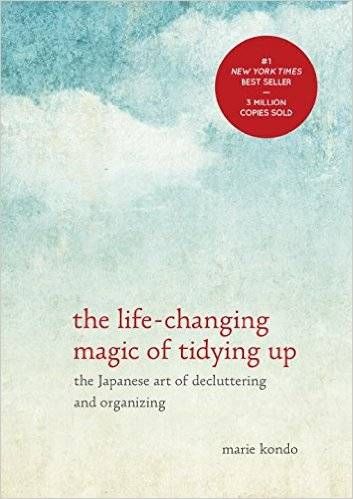 The Life-Changing Magic of Tidying Up by Marie Kondo
The Life-Changing Magic of Tidying Up by Marie Kondo
Since reading this, I’ve become more organized, less cluttered, and experienced more gratitude for the things that make my life easier and/or more beautiful. Even if I hadn’t, though, reading this would have been an absolutely delightful experience. Kondo is gentle, clear, and shares moving experiences from her own life and work. Reading this is like a cozy snuggle in a very tidy room.
And one that I’m looking forward to reading:
Eat Up by Ruby Tandoh
Tandoh is a fabulous food writer and an excellent advocate for body positivity and eating disorder recovery. This book is about “falling back in love with food” in resistance to toxic diet culture. It comes out February 1.



